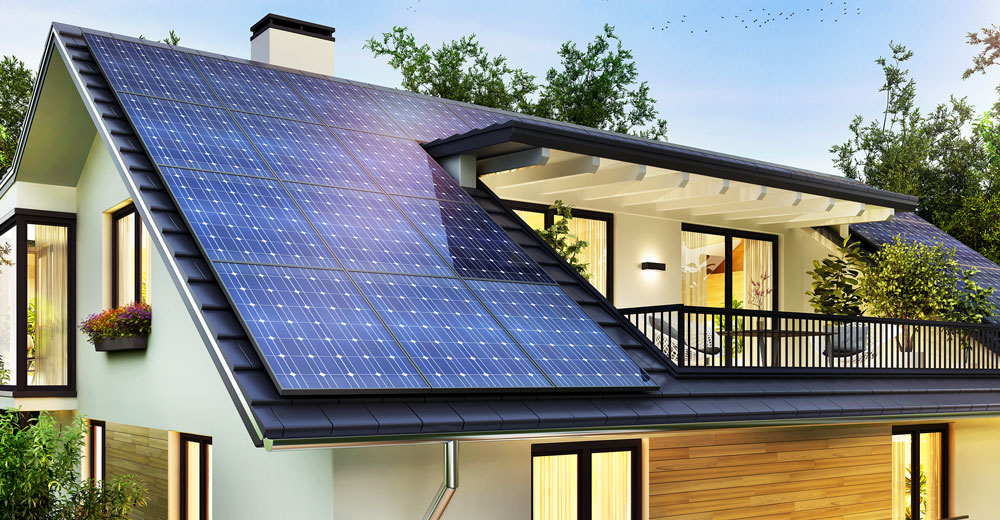
Navigating the Sunshine State: Getting HOA Approval for Your Solar Panel Installation in Cape Coral, Florida
Introduction
With its abundant sunshine and environmentally conscious residents, Cape Coral, Florida, is an ideal location for harnessing the power of solar energy. Solar panels not only reduce your carbon footprint but also offer substantial savings on your energy bills in the long run. However, before you embark on your solar journey, it’s crucial to navigate the complex landscape of homeowner association (HOA) approval and stay updated on the latest solar laws in the state. In this blog post, we’ll dive into the process of getting HOA approval for your solar panel installation in Cape Coral, Florida, while also shedding light on the newest solar laws that impact residents in the Sunshine State.
Understanding the Significance of HOA Approval
Homeowner associations play a vital role in maintaining the aesthetics and harmony of a community. They enforce rules and regulations to ensure that all properties conform to a specific standard, which often includes restrictions on exterior modifications. Solar panel installations, being a visible change to your home’s exterior, often fall under the jurisdiction of your HOA. Therefore, it’s essential to secure their approval before proceeding with your solar project.
Solar Panel Installation Regulations in Cape Coral, Florida
To get a better understanding of the specific regulations in Cape Coral, let’s explore some of the critical aspects of solar panel installation in Florida.
- Florida’s Solar Rights Law: Florida’s Solar Rights Law, also known as the Florida Homeowners’ Association Act, was enacted to protect homeowners’ rights to install solar panels on their properties. The law prohibits HOAs from unreasonably restricting the installation of solar panels on a homeowner’s property. It ensures that you have the right to install solar panels on your roof, subject to certain conditions and restrictions.
- HOA Solar Panel Regulations: While the Solar Rights Law grants you the right to install solar panels, there are still some limitations imposed by HOAs. These restrictions typically revolve around the aesthetics of the solar panel installation. HOAs can enforce rules regarding the color, size, placement, and orientation of solar panels to maintain the community’s overall appearance.
- Required Documentation: To initiate the process of obtaining HOA approval for your solar panel installation in Cape Coral, you’ll typically need to submit a comprehensive proposal to your HOA. This proposal should include details about the solar panel system, such as:
- A description of the solar panels and their specifications.
- The proposed location of the solar panels on your property.
- Information about the installer or contractor responsible for the installation.
- A visual representation or sketch of the installation.
- Any relevant information about how the installation will comply with HOA guidelines and maintain the aesthetics of the community.
Steps to Secure HOA Approval for Your Solar Panel Installation
- Review Your HOA’s Guidelines: Before proceeding, carefully review your HOA’s guidelines and bylaws related to exterior modifications, including solar panel installations. This will give you a clear understanding of any specific rules or restrictions that may apply.
- Consult with a Solar Professional: Engage a solar professional or installer with experience in navigating the local regulations and HOA approval process. They can help you design an installation that adheres to both state and HOA guidelines.
- Prepare a Detailed Proposal: Compile a comprehensive proposal that includes all the necessary information about your solar panel installation. Make sure to address any potential concerns raised by the HOA, such as aesthetics and property value.
- Submit Your Proposal to the HOA: Submit your proposal to the HOA for review. Be prepared to answer any questions or provide additional information as requested.
- Attend HOA Meetings: If your HOA requires it, attend meetings to discuss your solar panel installation proposal with the board members and fellow homeowners. Be prepared to address any concerns or objections and explain the benefits of solar energy.
- Obtain Written Approval: Once your proposal is approved by the HOA, request written approval or documentation of the decision. This will be crucial when applying for permits and working with your solar installer.
- Obtain the Necessary Permits: In addition to HOA approval, you’ll need to obtain the required permits from local authorities before starting your solar panel installation. Your solar professional can assist with this process.
Latest Solar Laws in Florida
Florida’s solar energy landscape is continuously evolving, with new laws and regulations designed to encourage the adoption of solar power. Staying informed about these changes is crucial for Cape Coral residents interested in solar panel installations.
- The Florida Solar Access Act: The Florida Solar Access Act, which came into effect in 2018, further strengthens homeowners’ rights to install solar panels on their properties. This legislation prevents local governments and HOAs from imposing unreasonable restrictions on solar panel installations. It also clarifies that solar panels can be installed on rooftops, exterior walls, and ground-mounted structures, as long as they meet certain conditions.
- Net Metering Policy: Florida has a net metering policy in place, allowing homeowners with solar panels to receive credits for the excess energy they generate and feed back into the grid. These credits can be used to offset future electricity bills, making solar installations even more economically attractive.
- Solar Energy Property Tax Exemption: Florida offers a property tax exemption for solar installations, making it more affordable for homeowners to invest in solar energy. This exemption applies to the added value of the solar system and can result in significant savings.
- Solar Financing Options: The state of Florida provides various financing options, including Property Assessed Clean Energy (PACE) programs and solar loans, to help residents finance their solar panel installations. These programs make it easier for homeowners to afford the upfront costs of going solar.
Conclusion
Harnessing the power of the sun through solar panel installations is a smart and sustainable choice for homeowners in Cape Coral, Florida. By understanding
